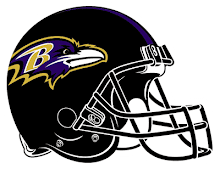So while it didn't provide the death knell to on-line poker that it was expected to it certainly slowed the rapid growth of poker and made it more difficult for the average Joe to deposit a few dollars on-line and play. Guys like me were able to find different ways to deposit and cash out but the casual player couldn't be bothered once his credit cards were declined. So what happened was a gradual erosion of casual losing players and the games got tougher and tougher as the player pool became more of the serious players and the fish found it harder and harder to deposit money. Thus you had a ton of good solid players fighting for the same contracting pool of fish.
Fast forward to 2010 and the drumbeat for legalized poker continues to get louder and louder as influential congressmen like Barney Frank and Jim McDermott and Senators like Harry Reid have introduced various bills that would provide a regulated on-line poker community. Well it appears that the Reid version of the bill is days away from passage in the current lame duck session. It is being bargained as a piece of the larger tax cut bill that is being debated and that larger bill is virtually certain to pass in some form.
Now the bill is not without it warts but here is the general gist of it:
- Sites would have to be licensed. Once licensed they could operate in the US and pay some sort of tax, fees, etc.
- Once the bill is passed there would likely be a "black out" period where the sites trying to obtain licensing would have to pull out of the US market. This would most obviously affect PokerStars and Full Tilt Poker as they would want to obtain the license. This blackout period would, likely, shut out the US market during the period.
- The black out period is expected to last somewhere between 3 months and 15 months.
- There would be tax reporting required of the sites meaning US players would receive some sort of tax document each year.
- The black out period would suck for us in the US. There would likely be some outlet for those who wish to continue playing but the "legit" sites like Stars and FTP would be blocked.
- There is always some concern anytime the government sinks it's teeth into something. Gov't intervention generally mucks everything up and I suspect the length of the black out period will be a bit longer than initially advertised.
Let's see what happens but it is an exciting time for the future of on-line poker. If you want to follow the various goings-on, hand wringing, etc. there is a great thread on 2 Plus 2 here:
http://forumserver.twoplustwo.com/57/poker-legislation/reid-pushing-plan-legalize-u-s-online-gambling-930754/



No comments:
Post a Comment